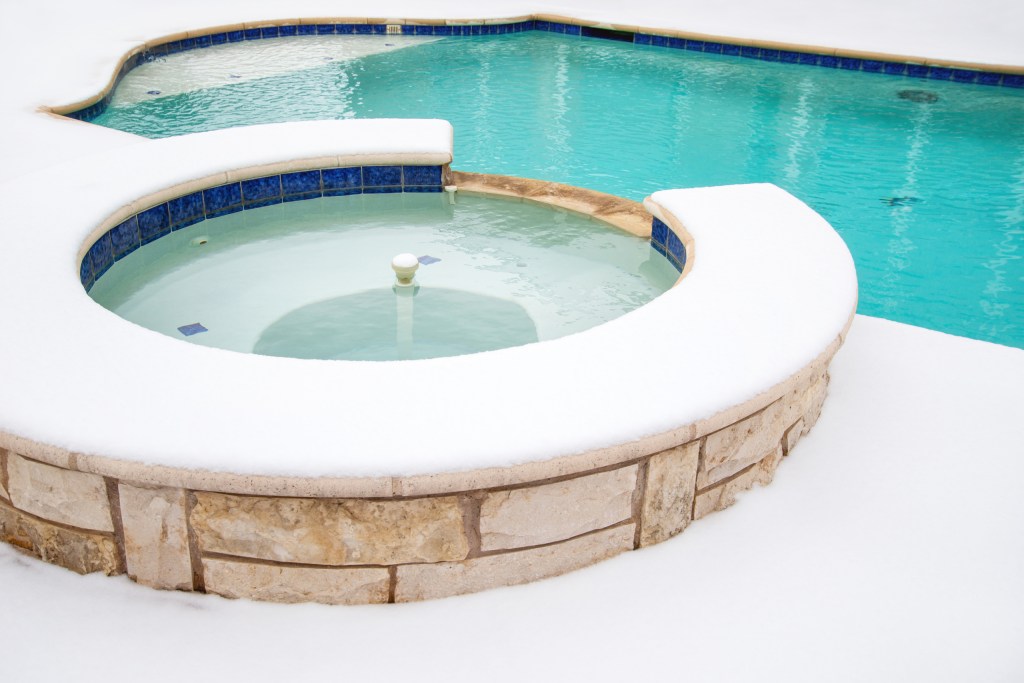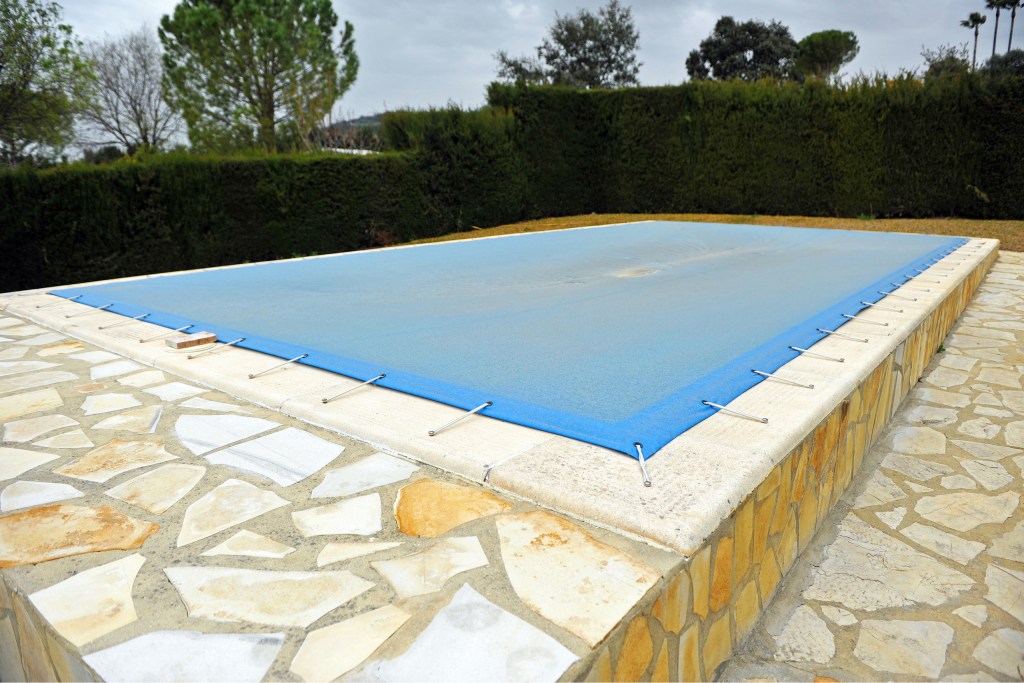Swimming pools need maintenance even during the winter months, whether you have an in-ground pool or an above-ground pool. You might be able to extend the swimming season if you have a pool heater, but you still need to ensure that you keep the correct balance of chemicals in your pool. If you’re not on top of things, you could wind up costing yourself more than you realize.
For instance, if you neglect your pool’s needs, your overall costs when spring rolls around are likely to be far greater than they would have been otherwise. Plus, you’re looking at potential damage to your pool’s finish and equipment, not to mention the possibility of having to deal with nasty stains.

You need to know whether to close your pool
You don’t necessarily need to close down your pool for the entire winter. There’s good and bad to having your pool open year-round. If you’re someone living in a cold region and you experience harsher winters, understand that the regular pool season is typically between May and September. Just pay more attention to the actual temperatures at night than to the month of the year. If it gets colder than 30° F. or below at night, you need to start closing things down.
Additionally, pay attention to the temperature limits of any pool cleaning robots you may have purchased. If it gets too cold and you leave the robot in the pool, you could damage it (perhaps permanently). Check the manufacturer’s instructions to be sure.
Have a pro check your pool
Before deciding to close down your in-ground or above-ground pool or embarking on winter maintenance — especially if you had any problems with your pool during the hotter months of the year — you should have your pool assessed for additional issues and if there are any, get them fixed now.
Think about it, if you invest in pool maintenance during winter, it’ll be in good shape when it warms up enough to begin using it again. It’s also likely to last throughout the winter without any huge problems cropping up.
In the off chance that you choose to skip pool repairs at this point, you’ll at least have a clear picture of what needs to be fixed once pool season comes back around. That way, you can plan, prioritize, and avoid any last-minute, expensive surprises.
Drain a bit of water
It’s likely unnecessary to drain all of the water from your swimming pool before winter hits. First of all, you may not want to waste water. Conservation is a thing, after all. With that said, you’ll still want to drain the water out of your pool until the water line is below the pool skimmer. Doing so can help prevent freezing.
Additionally, when you drain the pool, you’ll need to ensure that the filter, heater, and pump are drained, too. You don’t want any freeze-related damage to occur to these expensive pieces of equipment. However, bearing the above in mind, if you choose to drain your pool, you should get some professional help. You could lose your warranty on some pools if you don’t.
Keep your pool’s chemicals balanced
Ideally, your pool’s chemistry should remain as balanced as possible throughout the winter. Keeping everything balanced is easily accomplished by testing the water at least once per week. There’s a low chance that you’ll need to add chlorine as long as the pool isn’t being used and there is no water circulation. Still, things can become imbalanced for one reason or another, so it’s a good idea to monitor chemical levels.
Don’t let algae grow
While the growth of algae slows down considerably during colder months, you should still monitor its growth. Remember that temperatures can rise above 60° F. in some regions during the spring months, which gives algae a chance to start growing once again. Keep your chlorine levels to what they should be and if temperatures do rise, use a dose of algaecide at least once per week.

Keep your pool covered
You cannot overestimate the value of a good pool cover. You should look into buying a high-quality cover for your pool if you don’t already have one. Ensure that it’s the correct size and that it fits tightly over the entire pool.
Additionally, be sure that it’s made of thick and long-lasting material so that you won’t have to replace it often. Also, make sure that putting it on and taking it off is simple. You don’t want to deal with a pool cover that’s a hassle to work with.
Remember that having a good pool cover will help prevent leaves, rainwater, snow, and ice from getting into your swimming pool. Plus, you’ll help maintain balanced chemical levels, and you won’t have to clean out debris when it’s cold outside.
Get ready to open your pool again!
Before it warms up, you need to think ahead. Make sure you purchase all of the supplies you’ll need to keep your pool running smoothly before swimming season. Once spring arrives and temperatures rise, you’ll want to be ready to open your swimming pool back up right away.
Remember that winter pool care can sometimes be challenging, but there are easy, systematic ways to overcome those difficulties. Be smart, plan ahead, and get ready to enjoy the fun of swimming when temperatures allow!
Editors' Recommendations
- What you need to know about light deprivation (or ‘light dep’) greenhouses and how they work
- Do you need a fence for your garden? What you need to know before deciding
- What you need to know about successfully growing summer squash in containers
- How to install an above-ground pool liner safely
- Everything you should consider before painting your pool



